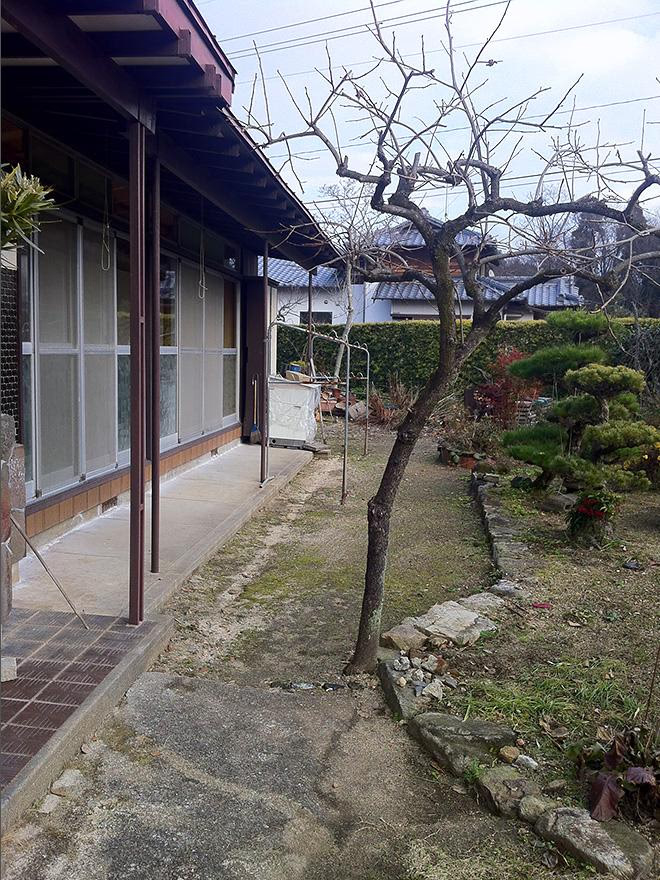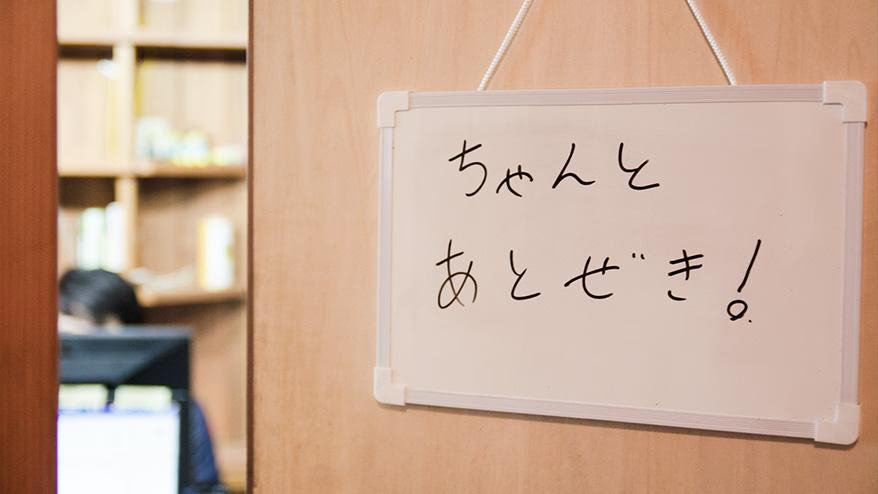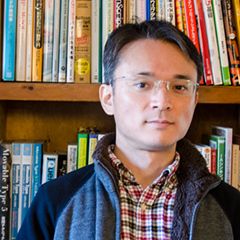Hello. This is Murakami from the Quality Control Department.
This may come as a surprise, but in my hometown of Kumamoto there is a word called "atozeki."
It means "to close a door or something after passing through it."
I wonder if it comes from the idea that "seki" (to connect) is done "after" something has passed through, and "sek" (to block).
When people leave the door open, they'll be told to "Close your door properly!" (I was often told this and scolded when I was a child...), or there will be a sign on the door that says "Close your door properly."
This is a phrase that is so commonly used in Kumamoto that until someone from outside the prefecture points it out to them, they'll say, "I always thought it was common language!"
When I was a student, I actually saw the school lunch ladies being asked by a student from Fukuoka Prefecture, "What is atozeki?" and reacting in surprise, "Isn't that a common word?!", so it seems that at least back then (about 20 years ago) quite a few people thought this way.
The reason why I came up with this phrase in the first place is
The room where the quality control department is located is also a hallway,
The door is often left open.
Then I remembered, "Oh, in this kind of situation we say 'atozeki'."
Although it deviates from the original meaning of this word, if we expand our thinking to include "tidying up after doing something," it can be applied to many different situations, such as tidying up the dishes and table after eating, lining up your shoes after taking them off, closing your PC after using it, and so on.
It's a mystery how such a phrase came about, but borrowing the wisdom (?) of my ancestors, I, who am a bit forgetful, sometimes repeat to myself, "atozeki, atozeki" so that I don't forget to tidy up.
Although this has become a rather serious topic, I would like to introduce some other Kumamoto dialect words.
- Ohimesan ... refers to a stye. Also called "ohimesama."
- Kuru (go to someone's place)... Thinking back on it now, I understand why I sometimes had trouble communicating with people from other prefectures.
- Gena... It seems to be used in Fukuoka Prefecture and other areas. I once heard a story about a person from Kumamoto Prefecture and a person from Tohoku who ran into each other on a school trip and laughed at each other's words, saying "Zuragena" (zura datteyo) and "Genazura" (gena datte), but since "zura" is not a Tohoku word, I don't know if it's true or not.
- Tsu... means a scab. "Tsu ga dekateru." I still use it today. For a long time, I didn't even know the word "scab."
- Tototto... to take. This is one of the phrases often used when introducing the Kumamoto dialect. "Kono seat tototto?" "Tototto." If you raise the end of the sentence, it becomes a question, and if you say it flatly, it becomes the answer. Also called "Tottoto."
- Boss... you. "Nusha nanbashi yokka!" (What are you doing?). It's pretty scary when you get scolded by this.
- Muzorashika... Cute. I only remember my grandmother using it. It's interesting that the word doesn't have a "cute" feel to it. According to Wikipedia, it seems to have evolved from the archaic word "mezurashi."
- Yaoikan... It seems to mean something like "difficult" or "tough," but it's one of the words I don't really understand. I don't remember hearing this word except when my grandmother used it. "Yaoikambana." The origin of the word seems to be "soft (yao)" and "not going (ikan)."
It's interesting to look up the meaning or origin of a word that I've used or heard casually and suddenly realize, "Oh, so that's what it means."

The view from the front door of my parents' house in Kumamoto. When I go home, I naturally start speaking in Kumamoto dialect.
I'm from Arao City in the northwest of the prefecture, but it seems to be similar to the dialect of the neighboring city of Omuta (Fukuoka Prefecture). Both Omuta and Arao are towns that prospered from coal mining and are connected across the prefecture, so it makes sense that the dialect is similar.
(As an aside, the Manda Pit, which is registered as a World Heritage Site, is also located in Arao City.)
In my case, I also lived in Kumamoto City for a period of time, so my language skills are a mixture of those from both Arao and Kumamoto, so it would be interesting to explore my linguistic roots.

